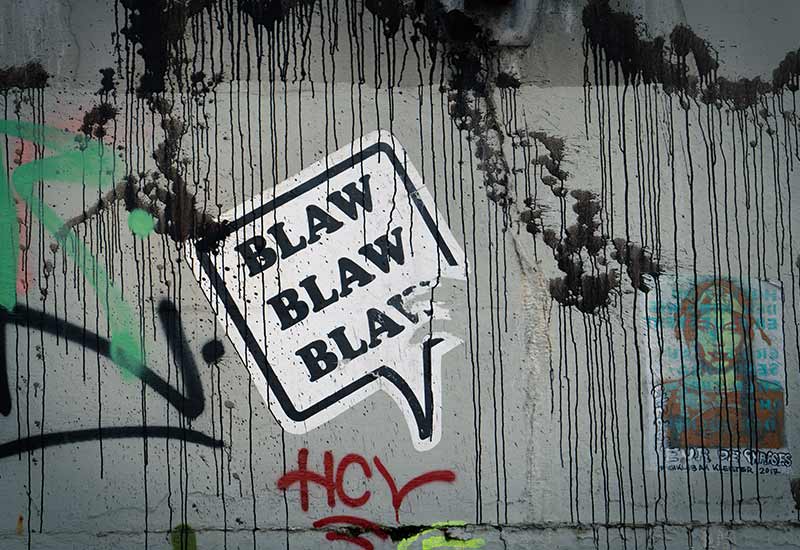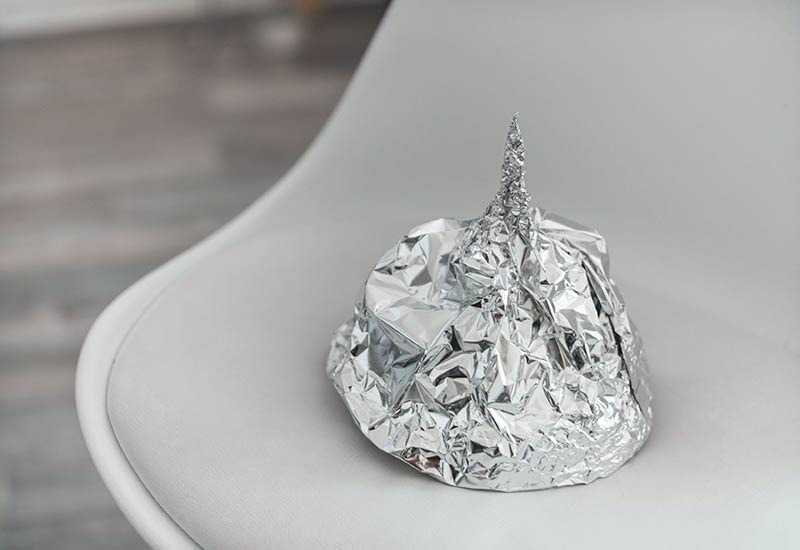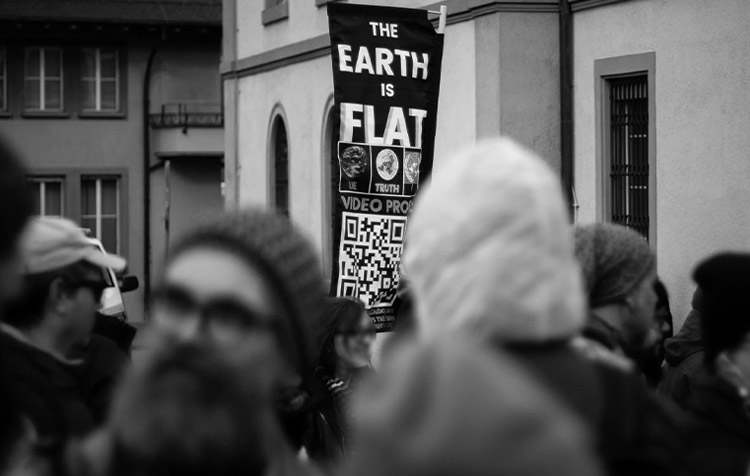What are conspiracy theories, anyway? Personally, I am happy when a discussion gains emotionality, as long as one sticks to the facts. But every now and then - and especially nowadays - I find myself more often in situations where people want to sell their personal opinion as fact without any evidence, even though it can be refuted in a matter of seconds on the basis of sober data and facts. Even if such conspiracy theories are completely unfounded, they unfortunately last quite a long time as discussed topics of conversation.
They drive me crazy. After all, they are not facts, but only crude, untrue theories and voucherless opinions that are not worth discussing or passing off as fake arguments. Ultimately, they can stop real social progress, endanger people and their relationships with each other, and cause real harm.
In order for conspiracy theories to decrease, I would like to give you everything you need to know about them in this article - how to define, recognize and debunk them, how they work and which examples gained particular notoriety. Let's go!
In advance you can find a short overview of the article here:
What is a conspiracy theory?

A conspiracy theory is understood to be the Suspicion that a group of people have come together in secretto achieve a common goal that may endanger other people. Much subjunctive thus. Finally, it is also only called conspiracy theory, because there is simply no evidence for the suspected conspiracy.
So-called conspiracy theorists are the people who nevertheless believe these theories. They usually firmly assume that it came to a certain event only because certain people (the conspirators) have conspired to it. They believe thereby not in the coincidence, but a large plan in the background. In the end, however, only Reality and invented facts mixed together.
Why do conspiracy theories work at all?
It basically only needs a culprit, which is particularly benefited by the occurrence of a certain event, a theory that many people would like to be true, as well as people and mediawho believe them, share them and spin them on.
Those who believe in a conspiracy make it much easier to bear a true but rather undesirable fact. Information that does not confirm one's own belief system is completely ignored. Other claims and opinions are not allowed. Instead, those who express them are then simply part of the conspiracy. Finished. In this way, no one scratches their own faith. Interest in logical, refuting explanations does not exist. Interesting is however, which supports the own but naturally only for the conspiracy theorists genuine truth. Thus it is actually even a conspiracy ideology.
"A lie can travel halfway around the world while the truth is putting on its shoes."
Mark Twain
Especially with the help of (social) media crude conjectures often spread like wildfire on the Internet. Conspiracy theorists prefer media and people in their environment who reinforce their own desired image. Factual media are the "lying press" - alternative media that confirm beliefs are the honest press. The more confirmation, the more the (mis)belief hardens to a possible conspiracy. And that is exactly how conspiracy theories work.
What are good examples of a conspiracy theory?
Actually, it is already too much to write about it at all. But of course I would like to give you some practical examples of better known but of course unproven conspiracy theories. Finally, because some of them can be dangerous to the environment, health or even life, and they should not simply continue to roam the world.
- Flat earth: "Flat-Earthers" believe that the earth is a disc.
- Qanon: Q-followers claim that an influential global Satanic elite kidnaps, imprisons and murders children in order to extract a rejuvenation serum from their blood.
- Bielefeld: In the rather satirical Bielefeld Conspiracy, it is assumed that the city does not exist but is merely convincingly feigned.
- Staged moon landing: Here it is assumed that the moon landings from 1969 to 1972 were only faked by NASA and the US government.
- Chemtrails: It is claimed that some contrails in the sky are not aircraft exhaust, but the deliberate, global spreading of chemicals to minimize population, for example.
- Corona Conspiracy: With the Corona vaccination, rich businessmen around Bill Gates want to transplant microchips into mankind to control humanity and depopulate the world. (only one of many conspiracy myths of the pandemic).
- 9/11: It is alleged that the American government of the time, led by George W. Bush, was involved in the attack on the World Trade Center in order to justify the subsequent war on terror.
- Lizardmen: It is claimed that so-called reptiloids hold high offices with the aim of enslaving humanity.
I do not want to go into more examples here now, as I think they already illustrate well enough what to expect from a conspiracy theory.
How do I recognize a conspiracy theory - and how can you debunk it?
For conspiracy theorists, you need someone to whom you can give the Attach guilt can - as a rule, it is people who benefit from a certain event in fact or even in theory. But as a rule there are also other people who profit - and of course also those who are not affected at all or even have to suffer from it. With a conspiracy theory this is faded out: In principle, there is only the good victim and the evil conspirator(s).
"People are far more likely to believe a lie they have heard 100 times, than a truth that is completely new to them."
Alfred Polgar (more sayings under Honesty Quotes)
Complex interrelationships are therefore simplified so muchthat an assumption could theoretically be correct, if the data situation would allow it. And again: a lot of subjunctive without proof. But this is exactly how you recognize a conspiracy theory.
Share a new message only when you really believe it to be true and substantiated - because otherwise you're just adding fuel to the conspiracy theory's fire, which it needs to spread quickly. Is the contribution very one-sided and makes mood against something, are the contents proven or do they rather come from very dubious sources? You can also recognize baseless assumptions and debunk them safely. However, a certain basic skepticism is generally never wrong.
Conspiracy theories can be dangerous!

If sufficient measurable evidence is available, it is an objectively true fact - and at this point one no longer discusses the opposite. Because only because one would like to believe the opposite, it does not become true. We cannot afford fantasies and "alternative facts" if we want to develop further as a global society as a whole and live together, sustainably and peacefully on this earth.
You can believe in the staged moon landing if you want to. After all, freedom of opinion and freedom of belief apply in Germany. But as soon as a conspiracy theory endangers (other) people or scares them without any evidence, action must be taken against it.
I hope that you are prepared for the future with the content from this post - and that conspiracy theories, false claims and fake news do not fall on fertile ground with you.
Stay fact and fact-oriented,

PS.: Look you gladly still something more in the Knowledge blog um. Learn, for example, what is meant by the so-called Whataboutism which even conspiracy theorists like to fall back on. Have fun!





